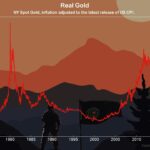
By Andrey_Popov @ Shutterstock.com
You may think the phrase “speculative investor-driven home price bubble” sounds familiar. If so, you may be old enough to remember 2008, when an extremely low interest rate environment, encouragement by the government to lend, and yield chasing investors on Wall Street combined to tank the economy. Deja vu, right? Ryan Dezember reports in The Wall Street Journal:
A bidding war broke out this winter at a new subdivision north of Houston. But the prize this time was the entire subdivision, not just a single suburban house, illustrating the rise of big investors as a potent new force in the U.S. housing market.
D.R. Horton Inc. DHI 2.17% built 124 houses in Conroe, Texas, rented them out and then put the whole community, Amber Pines at Fosters Ridge, on the block. A Who’s Who of investors and home-rental firms flocked to the December sale. The winning $32 million bid came from an online property-investing platform, Fundrise LLC, which manages more than $1 billion on behalf of about 150,000 individuals.
The country’s most prolific home builder booked roughly twice what it typically makes selling houses to the middle class—an encouraging debut in the business of selling entire neighborhoods to investors.
“We certainly wouldn’t expect every single-family community we sell to sell at a 50% gross margin,” the builder’s finance chief, Bill Wheat, said at a recent investor conference.
From individuals with smartphones and a few thousand dollars to pensions and private-equity firms with billions, yield-chasing investors are snapping up single-family houses to rent out or flip. They are competing for houses with ordinary Americans, who are armed with the cheapest mortgage financing ever, and driving up home prices.
“You now have permanent capital competing with a young couple trying to buy a house,” said John Burns, whose eponymous real estate consulting firm estimates that in many of the nation’s top markets, roughly one in every five houses sold is bought by someone who never moves in. “That’s going to make U.S. housing permanently more expensive,” he said.
The consulting firm found Houston to be a favorite haunt of investors who have lately accounted for 24% of home purchases there. Investors’ slice of the housing market grows—as it does in other boomtowns, such as Miami, Phoenix and Las Vegas—among properties priced below $300,000 and in decent school districts.
“Limited housing supply, low rates, a global reach for yield, and what we’re calling the institutionalization of real-estate investors has set the stage for another speculative investor-driven home price bubble,” the firm concluded.
Action Line: Chasing yield is an expensive endeavor. You might end up chasing it right to zero. Instead, focus on compounding, counterbalancing, saving until it hurts, and drawing from your portfolio at a sustainable rate.
E.J. Smith - Your Survival Guy
Latest posts by E.J. Smith - Your Survival Guy (see all)
- “What Do You Do If the Market Crashes?” - April 19, 2024
- Costco Gold Bars Sell Out Despite Premium Price - April 19, 2024
- A Wise Man’s Take on the Boston Bruins Playoff Chances - April 19, 2024
- Is Your Retirement Life a Mess? Let’s Talk - April 18, 2024
- Your Survival Guy Learns from Marie Kondo - April 18, 2024














